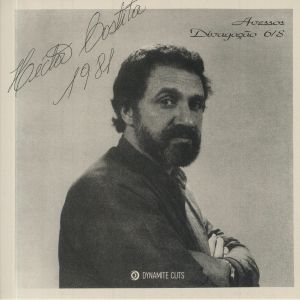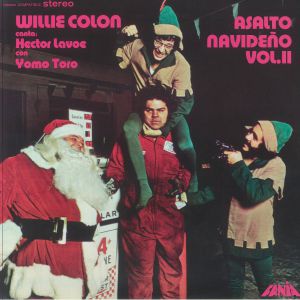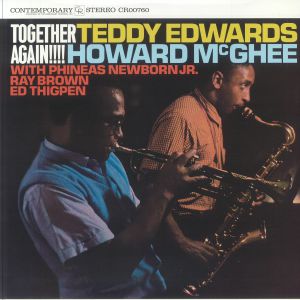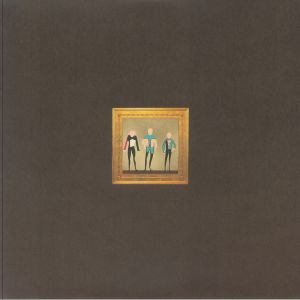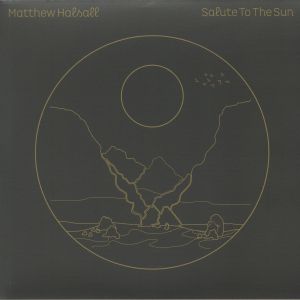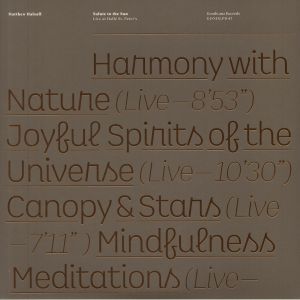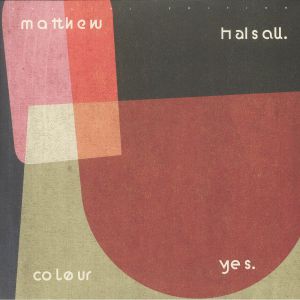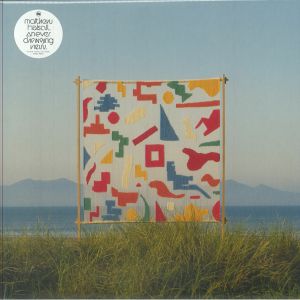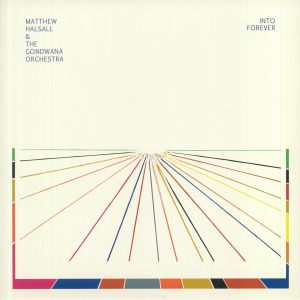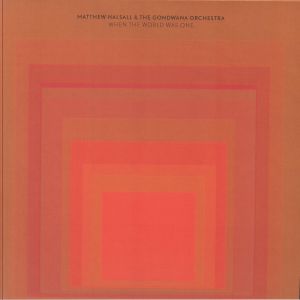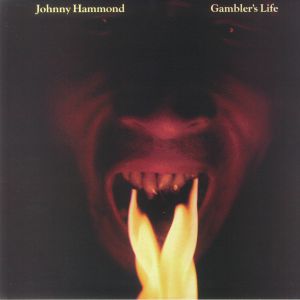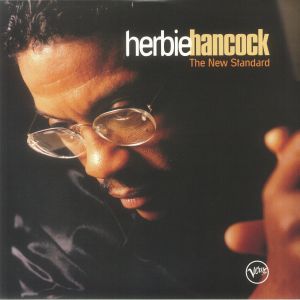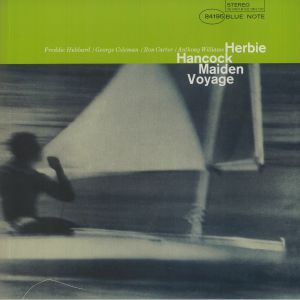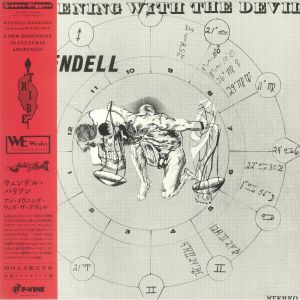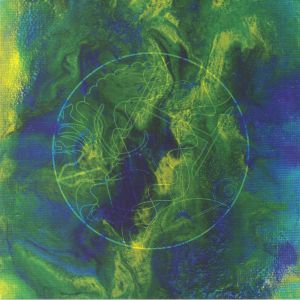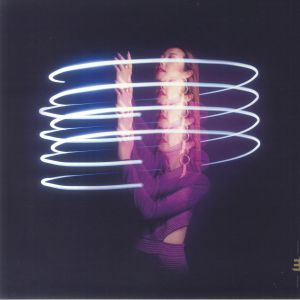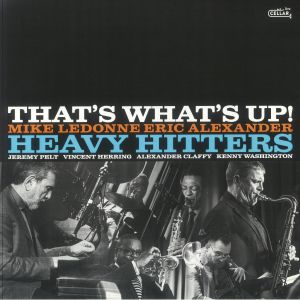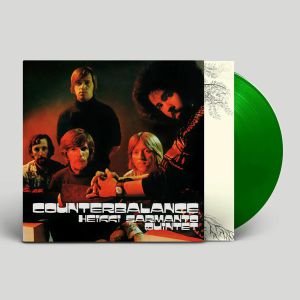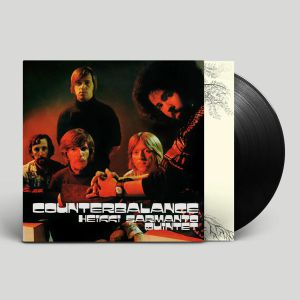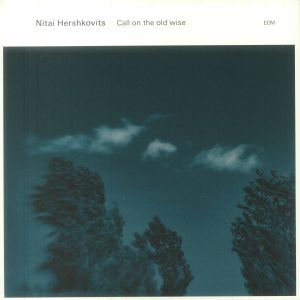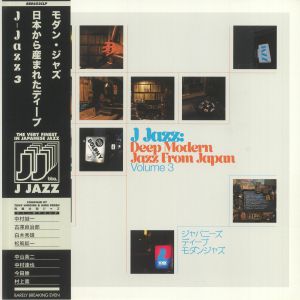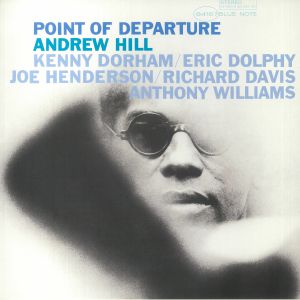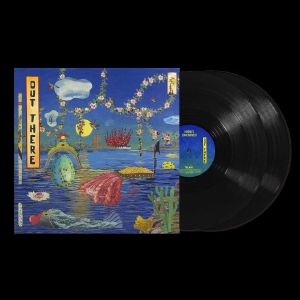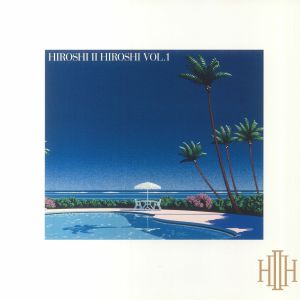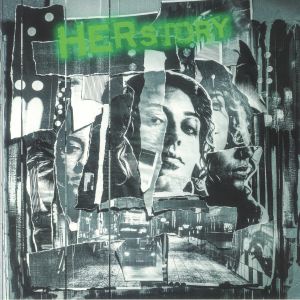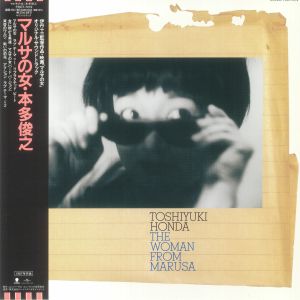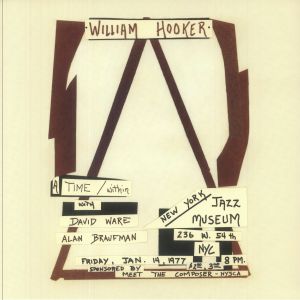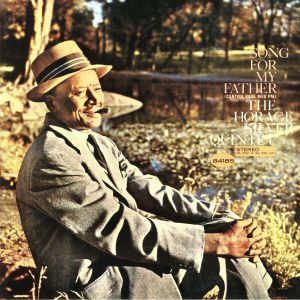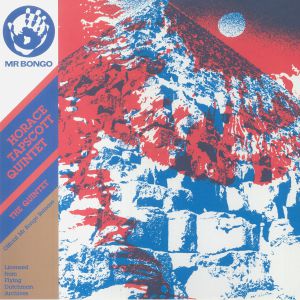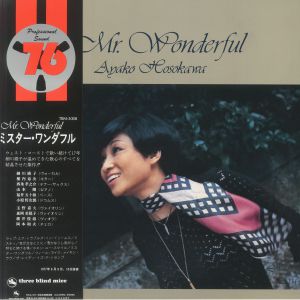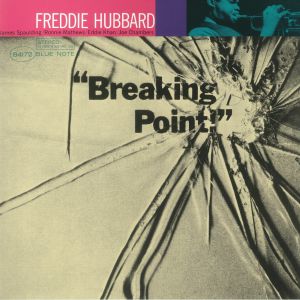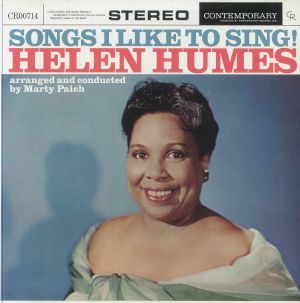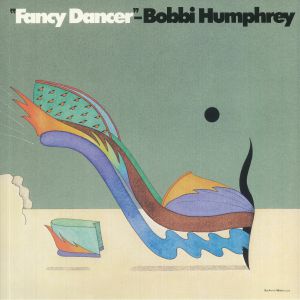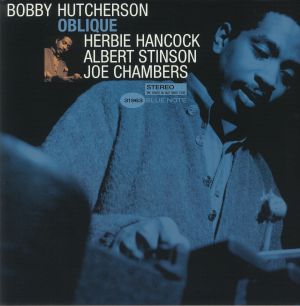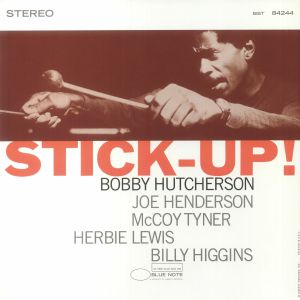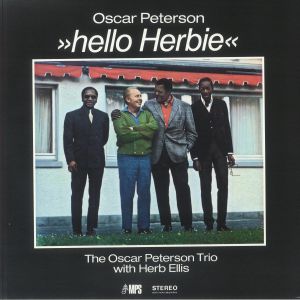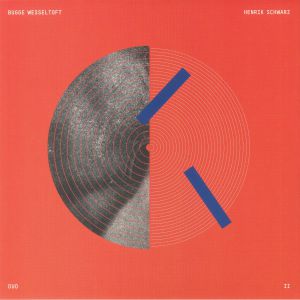Filter
在庫状況
Type
アーティスト
Featured
リリースタイトル
タグ
Back catalogue:
Juno's full catalogue of
シングル
Review: While best known for their funk and soul reissues, Dynamite Cuts do frequently dig deeper and look further afield for musical inspiration. They're at it again here, offering up a lavishly packaged "45" featuring two killer cuts from Brazilian saxophonist and flautist Hector Costita's jazz-funk/jazz-fusion album 1981 (which, you guessed it, was first released in 1981). A-side 'Avessos' is warming, gentle and groovy, with Costita's jaunty sax motifs rising above a samba-jazz beat, restless triangle percussion and some seriously toasty electric piano lines. 'Divagacao' is a more up-tempo nd rhythmically interesting affair that reminded us of Azymuth while also boasting some genuinely dazzling sax solos.
… Read more in stock $20.79
アルバム
Asalto Navideno Vol II (reissue) (limited 180 gram green vinyl LP + insert)
Cat: 888072 426931. Rel: 22 Nov 24
Review: The celebration of this series continues with a reissue of the second installment of the legendary Christmas salsa album. Willie Colon and Hector Lavoe returned here to bring the unique sounds that made Volume I a Latin music classic. For this one, Colon and Lavoe were joined by renowned cuatro player Yomo Toro and legendary percussionists Milton Cardona and Jose Mangual Jr. Together, they crafted salsa versions of beloved Puerto Rican Christmas songs while mixing traditional musica jibara with Cuban guaguanco, son montuno and African-American jazz. It delivers on all fronts with vibrant, festive blends that bring real Puerto Rican authenticity to salsa fans worldwide.
… Read more in stock $37.42
Together Again!!!! (reissue) (180 gram vinyl LP)
Cat: CRF 1436891. Rel: 03 Oct 24
Review: Together Again!!!! reunites trumpeter Howard McGhee and saxophonist Teddy Edwards in a jazz collaboration originally released in 1961 that is as energised and electric as the title with all its many exclamation marks. This reissue is part of the Acoustic Sounds Series and showcases the exceptional talents of McGhee and Edwards alongside Phineas Newborn Jr. on piano, Ray Brown on bass, and Ed Thigpen on drums. It has been cut from the original master tapes by Bernie Grundman so the AAA lacquers enhance the album's rich sound. It's a mini-classic of the jazz world and it never sounded better.
… Read more in stock $35.47
Dream Trio (180 gram vinyl LP)
Cat: 870405 0244. Rel: 02 Jan 25
Review: Sam Gendel is renowned for his innovative use of saxophones and wind controllers and with that he brings a fresh perspective to contemporary music. Benny Bock meanwhile is a versatile keyboardist, composer, producer and sound designer from Oakland, California who crafts evocative soundscapes across diverse styles. Hans Kjorstad is the third and final part of this three-way collaboration and is a musician and composer who specialises in contemporary microtonal music while drawing inspiration from Norwegian traditional music and experimental improvisation. Together, their unique approaches push the boundaries of modern music as they weave traditional and avant-garde elements into a rich tapestry of sound that bridges genres and challenges conventions.
… Read more in stock $31.04
Salute To The Sun (half speed remastered) (2xLP + MP3 download code)
Cat: GONDLP 039STD. Rel: 06 May 21
Review: Second time around for Matthew Halsall's sixth solo album, Salute to the Sun, a set that many critics cited as being among the best contemporary jazz albums of 2020. As the title suggests, it's unarguably Halsall's most summery album to date, with the celebrated bandleader and trumpeter - accompanied by some of Manchester's most accomplished players - offering up a swathe of relaxed, life-affirming compositions that combine modal and contemporary jazz themes with gentle, Latin-influenced rhythms, breezy instrumentation (harps, kalimbas, marimbas and so on) and subtle nods towards Charles Stepney and Terry Callier. Some of the woodwind and brass solos are similarly superb, while the album's sun-soaked, easy-going atmosphere is alluring whatever the weather.
… Read morePlayed by: Juno Recommends Jazz
in stock $30.21
Salute To The Sun Live: Live At Halle St Peter's (2xLP (side 4 etched) + MP3 download code)
Cat: GONDLP 047. Rel: 02 Dec 21
Review: The Alt label hits its second record with a sterling cast of wayward techno bods in tow. Things fire up in a tough and trippy manner as Delta wrings all kinds of tricky noises out of his gear and keeps the bass brooding in the low end, but hold tight for a perfectly 90s chord progression in that pad line. Cabanelas has a bleepy mission on 'Sambu Y Los Morsas' which flits between creepy passages of tension and acid tweaking drops. Z@p keeps things melancholic while adhering to the record's over-arching old-skoool outboard vibe, and then Justin Drake and Quinn Whalley sign the record off with a slice of proto trance for the deepest of 90s-tinted dancefloor reveries.
… Read more in stock $28.81
Review: As part of his Gondwana label's 10th anniversary, masterful Manchester trumpeter and contemporary jazz trendsetter Matthew Halsall has put together a special deluxe edition of his beautiful "Colour Yes" album with thick reverse board sleeves, silver block letter foiling and two printed inner sleeves. First released in 2009, the album showcases Halsall's deeply emotive style across the 8 achingly good, supremely spiritual tracks that glow with gorgeous piano playing, gently lilting drums and his own fantastic leads.
… Read more in stock $28.81
Review: Trumpeter, bandleader and composer Matthew Halsall has established himself at the forefront of the contemporary jazz scene. In part that was down to his landmark album, An Ever Changing View, which is an expansive project blending jazz, electronica, global and spiritual jazz influences. Now reissued, the album highlights Halsall's signature meditative sound while showcasing his most experimental work yet, pushing boundaries with innovative production techniques. Composed in striking modernist settings with breathtaking views, the album captures a sense of openness and escapism and embraces a fresh start after Halsall reset his creative approach and explored sound with complete freedom to craft a deeply immersive and transformative record.
… Read more in stock $31.59
Into Forever (LP + MP3 download code)
Cat: GONDLP 013. Rel: 13 Apr 21
Review: Following 2014's When The World Was One, Halsall and the Gondwana collective continue their spiritual jazz adventure with another immaculate narrative. Now with much more vocal prowess, singer Josephine Oniyama plays a lead role in the story, adding consistency and personality to the Halsall's swooning, cinematic odysseys. Highlights include the Hathaway-style half spoken/half sung "Badder Weather", the frenetic double bass and brushed drum crescendos of "The Land Of", the (lark) ascending strings and oriental scales of "Cushendun" and the smoky, faraway Coltraneisms of the title track. Modern jazz doesn't get any more authentic than this.
… Read more in stock $28.55
Cat: GONDLP 010BIO. Rel: 04 Oct 24
Review: Matthew Halsall is one of a few key UK artists who helped make jazz cool again over the last decade. His magnificent trumpet skills and ability to tap into plenty of orchestral talent has resulted in plenty of vital albums on his Gondwana label and one of the best, if you ask us, is When The World Was One. It's a spiritual and joyous mix of contemporary and classic styles in the view of your Alice Coltrane types and now gets reissued across double vinyl. Whether it's soaring brass, heart-melting piano playing, soaring crescendos or more quiet and intimate moments you seek, this an essential jazz album whether you're a wisened old cat or a younger newcomer.
… Read more in stock $30.49
Review: Johnny Hammond was a prolific organist, composer and multidisciplinary artist active throughout the USA for the majority of the 20th Century. By the time the lesser-known LP and meditation on devilish excess 'Gambler's Life' was released in 1974, Hammond's sound had grown unusually cacophonous and was noisy to a kind of perfection that could only be described as an acquired taste. That doesn't deter us, though: this reissue from Soul Brother carefully pays homage to the late great's 28th album, with the broken wonk of 'Rhodesian Thoroughfare', the voluptuous funk of 'Star Borne' and the melismatic virtuosity of 'Virgo Lady' all tempting us back towards the broad gate.
… Read more in stock $25.49
The New Standard (Verve By Request) (gatefold 180 gram vinyl 2xLP)
Cat: 554062 2. Rel: 10 Aug 23
Review: Jazz pianist Herbie Hancock sure did love to record music. The New Standard was his fortieth, four oh, album and not by a long way was it his last. It came in 1996 on the Verve label and is the sound of the great American musicians offering up his own jazz renditions of classic and more contemporary rock and r&b tunes. The star-studded sextet also features saxophonist Michael Brecker, guitarist John Scofield, bassist Dave Holland, percussionist Don Alias and drummer Jack DeJohnette with some of the original tunes by the likes of Peter Gabriel, Prince, Kurt Cobain and Stevie Wonder.
… Read more in stock $22.16
Maiden Voyage (Classic Vinyl Series) (limited 180 gram audiophile vinyl LP)
Cat: 359319 6. Rel: 24 Sep 21
Review: Blue Note's Classic Vinyl series is about reissuing vital jazz records on heavyweight vinyl with all new mastering by Kevin Gray of Coherant Audio. Next to get the special treatment it deserves is Herbie Hancock's 1965 classic Maiden Voyage, which is some of the most evocative jazz to have ever been recorded. Net to Hancock, the players were all either present or past members of Miles Davis' quintet, so made for a heavy line-up. Hancock's impressionistic style is here for all to hear with the sublime compositions of 'Dolphin's Dance' and 'Maiden Voyage' and more tumultuous sounds of 'The Eye Of The Hurricane' some of the highlights.
… Read morePlayed by: Juno Recommends Jazz, DJ ROCCA
in stock $26.33
An Evening With The Devil (limited LP with obi-strip)
Cat: PLP 7984. Rel: 20 Jul 23
Review: An Evening With The Devil is regarded as one of the Tribe Records label's finest ever releases - an unrestrained free jazz expression from Wendell Harrison that is packed with forward-thinking grooves. The Detroit reedman was always in a class of one and he showed it here with a record so heavy it was way ahead of its time. Now though it's regarded as a classic with trumpet from Marcus Belgrave, Charles Eubanks on keyboards, Ike Daney on drums, and Will Austin on bass. There are also some spoken word passages from the Black Messengers making this a jewel of the jazz underground.
… Read more in stock $35.76
Review: Two Johns unite: griot and kora master John Haycock, hailing from Manchester, and fellow multi-instrumentalist John Ellis, team up for the spiritual-visionary album 'Didymus'. Enlisting a ragtag band of musicians to produce something far beyond what the average folk artist can make on their own, the album centres on a single mantra: 'visions create'. The aim is to sonically chart a roadmap towards a bright future, a feat that seems impossible: the means are sequenced electronic, dub-psychs flourishings, solstice chants, and poetry from a band of wordsmiths such as Rob Dunford and Sunflower Bill.
… Read more in stock $43.51
M Unit: Beyond Orbits (limited gold marbled vinyl LP)
Cat: EDNLP 1220. Rel: 28 Sep 23
Review: Composer and conductor Miho Hazama celebrates ten years of her respected M Unit project with an all new album performed by it. Beyond Orbits is a vibrant work that is also a fine testament to her endless creativity within the world of jazz. In the last decade she has played all over the world but the album was written in the confines of her flat during the pandemic in New York. But you wouldn't know it because like Afro-Futurists before her she looked outwards to the stars for inspiration. Effectually the album pays homage to the captivating wonders of the exoplanetary realm in majestic fashion.
… Read more in stock $21.90
Review: In many ways, this album by the Heavy Hitters delivers everything jazz enthusiasts crave: an all-star ensemble, blues-rooted improvisations and original compositions that enrich the modern jazz repertoire. This live recording captures the deep emotions and authentic feelings that make such performances truly special. It is full of electric solos and dense melodies, shuffling rhythms and "lightning in a bottle" moments where fresh nuances emerge with every listen. Recorded after a two-week tour, the album culminated in a memorable performance at Frankie's, one of the world's finest jazz clubs, and is well deserving of your ears.
… Read more in stock $47.66
Counterbalance (reissue) (transparent green vinyl LP + insert)
Cat: SRE 633LPB1. Rel: 13 Mar 25
Review: Finnish fusion five-piece the Heikki Sarmanto Quintet recorded and released their sole album, Counterbalance, way back in 1971. Brought together by bandleader and Rhodes electric piano wizard Heikki Sarmanto, the band burned brightly briefly before vanishing into obscurity. Svart Records has - wisely, given its cult status - decided to reissue the album, this time on translucent green vinyl and accompanied by extensive liner notes. It remains a unique and hugely enjoyable album that joins the dots between warm and largely laidback contemporary jazz, jazz-funk, more pastoral folk-jazz fusion, and more high-octane, spiritual jazz-inspired improvisations. It also boasts some genuinely life-affirming flute and guitar solos amongst the rubbery double bass, loose-limbed rhythms and Sarmanto's inspired keys-work.
… Read more in stock $27.16
Counterbalance (reissue) (LP + insert)
Cat: SRE 633LP. Rel: 13 Mar 25
Review: A rare reissue for one of the most sought-after records in Finnish jazz history: the sole studio album by electric piano wizard (and bandleader) Heikko Sarmanto's short-lived quintet. Recorded and first released by EMI Finland's jazz department in 1971, Counterbalance remains a unique and hugely enjoyable album that joins the dots between warm and largely laidback contemporary jazz, jazz-funk, more pastoral folk-jazz fusion, and more high-octane, spiritual jazz-inspired improvisations. It also boasts some genuinely life-affirming flute and guitar solos amongst the rubbery double bass, loose-limbed rhythms and Sarmanto's inspired keys-work. Helpfully, this edition also boasts an insert with extended liner notes telling the story of this inspired cult classic.
… Read more in stock $26.05
Review: Call on the old Wise is a magnificently captivating solo album that was largely improvised in the moment. It finds pianist Nitai Hershkovits delivering some of his best work as he draws on a wide array of influences that go from his extensive work in the jazz world to more cutting-edge and contemporary explorations via plenty of his own personal classical music experiences. In it, there's a great balance of light and dark, heavy and more airy as well as rich arrays of colour and timbre. It was recorded in 2022 and produced by Manfred Eicher following his work with Oded Tzur's quartet on two acclaimed albums, Here Be Dragons and Isabela.
… Read more in stock $28.55
Tony HIGGINS / MIKE PEDEN / VARIOUS
J Jazz: Deep Modern Jazz From Japan Volume 3 (gatefold 3xLP + insert with obi-strip)
Cat: BBE 652CLP. Rel: 26 Feb 21
Review: Since launching two years ago, Tony Higgins and Mike Peden's J-Jazz series has become an indispensable guide to Japan's modern jazz scene. The third volume continues in a similar vein to its predecessors, gathering together sought-after, overlooked and little-known cuts from across the jazz spectrum (think spiritual, modal, fusion, post-bop and Latin), all of which were recorded by Japanese artists in the 1960s, '70s and '80s. The standard of music is, somewhat predictably, breathtakingly high throughout, with highlights including the weighty post-modal bop of Koshuke Mine's 'Morning Tide', the sun-kissed Brazil-inspired brilliance of Hideo Shiraki's 'Groovy Samba', and a string of funk-fuelled, dancefloor-friendly workouts from Hiroshi Murakami & Dancing Sphynx, Shigeharu Muka and the Ryojiro Furusawa Quartet.
… Read more in stock $41.01
Review: American jazz pianist and composer Andrew Hill originally released his Point of Departure album in 1965 on the Blue Note label. He found him playing in a sextet alongside the talented likes of alto saxophonists Eric Dolphy and Joe Henderson plus trumpeter Kenny Dorham and drummer Tony Williams as well as bassist Richard Davis. The record was remastered for a CD release in 1999 by the legendary Rudy Van Gelder and even now it stands apart as a future jazz statement. Some of the tracks are heavy on melancholy to the point that Dorham would occasionally tear up when playing them live.
… Read more in stock $31.59
Review: World-renowned pianist Hiromi is a hugely prolific artist and Out There is her 13th studio album. Despite her output, she continues to show innovation while fusing jazz styles into her own sound. Here she is joined by her band Sonicwonder, featuring Adam O'Farrill on trumpet, Hadrien Feraud on bass and Gene Coye on drums. Together they deliver an electric and dynamic performance that pushes the boundaries of jazz while coming steeped in exceptional musicality and innovative approaches. Having performed at prestigious jazz festivals worldwide and received accolades from major outlets like the New York Times and NPR, Hiromi shows she is far from done yet with this double album.
… Read more in stock $38.79
Hiroshi II Hiroshi Vol 1 (reissue) (translucent blue vinyl LP)
Cat: HRLP 258. Rel: 18 Aug 22
Review: Hiroshi II Hiroshi was a one-off project from Hiroshi Fujiwara and Hiroshi Kawanbe which came out on File Records in 1993. It's a flawless gem of island boogie smoothed out to a gentle lull, buffeted along by breezy guitar licks and mellow Rhodes, quite happily reclining on a melodious phrase or two for as long as necessary to ensure ultimate relaxation. 'H2O' in particular is a float-adrift masterpiece, while 'Beauty & Beast + Bagel (Dub)' teases a little intrigue in amidst the placid waters without kicking up a fuss. Now it's being repressed on appropriately clear blue vinyl, bringing a perfect nugget of chill-out charm within reach for all your lounging, poolside or hammock-based needs.
… Read morePlayed by: Manu Archeo
in stock $39.63
Review: Since her 2019 joint LP These Days with Daniel Casimir on jazz re:freshed, Tess Hirst has been crafting her debut solo album which now finally sees the light of day. It features Richard Spaven on drums, Sarah Tandy on piano, and Tomorrow's Warriors StringTing, all under the production and arrangement of Casimir, who also plays various basses. Magic celebrates inspiring women and pays tribute to Hirst's West London roots with a lead single that embodies resilience, while 'A Seed' transforms challenges into beauty, 'Reckoning' is smoky downtempo bliss with Hirst's ethereal voice always the main attraction.
… Read morePlayed by: Juno Recommends Broken Beat Nu Jazz
in stock $23.00
The Woman From Marusa/Marusa No Onna (Soundtrack) (reissue) (LP + insert with obi-strip)
Cat: PROT 7219. Rel: 06 Dec 22
Review: Fans of this one have long been waiting for a reissue and it is now finally here. It's a soundtrack to the movie Marusa no Onna which was directed by Juzo Itami and was set in the National Tax Bureau Inspection Department. The film's main theme marks the start of the album with its epic sax melody. It really shows off Toshiyuki Honda's impressive sound and kicks off an immersive and evocative record that was first released back in 1987 and has been a real digger's delight ever since.
… Read more in stock $38.53
Cat: 62743. Rel: 01 May 25
Review: Originally recorded live at the New York Jazz Museum in 1977, this newly mastered version of a classic form William Hooker captures a vital, previously unheard performance from three titans of free jazz. They are eponymous drummer William Hooker, tenor saxophonist David S. Ware and alto saxophonist Alan Braufman and this session brims with raw, unfiltered energy that taps into a pivotal moment in each artist's career. Hooker's percussive invention, Ware's searing intensity and Braufman's loft-era vision combine in a spellbinding document of New York's avant-garde scene and form what is a crucial artefact from jazz's fearless frontier of the time.
… Read more in stock $29.92
Song For My Father (reissue) (180 gram audiophile vinyl LP)
Cat: 744043. Rel: 15 Jan 21
Review: It was 10 years into his career that Horace Silver made this album - the one that many regard as one of his very best - at the famous Van Gelder Studio with Blue Mitchell, Junior Cook, Gene Taylor, and Roy Brooks. It captured his quintet's transition and came a year ahed of another recording session that gave rise to his definitive hit, 'Song For My Father', which is also included as a tribute to his father, who was of Cape Verdean heritage. This Blue Note Classic Vinyl Edition is an all analogue affair that has been remastered by Kevin Gray from the original master tapes, so sounds superb.
… Read more in stock $26.33
Review: Accomplished American jazz pianist Horace Tapscott recorded a seminal album with his quintet in 1969 The Giant Is Awakened. A follow-up album was recorded but never released, locked away in the Flying Dutchman archives until today. This three-track avant-garde session features the same players from The Giant Is Awakened - Arthur Blythe on alto sax, Everett Brown Jr on drums and David Bryant and Walter Savage Jr on bass. It wasn't long after this Tapscott retreated from the mainstream music industry to record in a low key fashion and eventually establish the Pan-Afrikan People's Arkestra, but The Quintet captures a special moment in time never heard before a dream come true for Tapscott fans and jazz lovers of all stripes.
… Read morePlayed by: Juno Recommends Jazz
in stock $24.94
Mr Wonderful (remastered) (limited 180 gram Vinyl LP + booklet with obi-strip)
Cat: MHJL 357. Rel: 05 Nov 24
Review: The classic album Mr. Wonderful by Japanese jazz vocalist Ayako Hosokawa has been reissued here on nice heavyweight vinyl and it includes a booklet with further context from Sony. Hosokawa has long delighted fans with her soulful renditions of jazz standards and this album was originally recorded in 1982 with her rich, emotive voice paired with impeccable instrumentation bringing timeless tracks like 'Mr. Wonderful' to life. Hosokawa has expressive phrasing and a delicate balance of warmth and precision that creates a sublime jazz sound that's both intimate and sophisticated.
… Read more in stock $42.41
Breaking Point (Tone Poet Series) (limited gatefold 180 gram audiophile vinyl LP)
Cat: 355198 2. Rel: 02 Jun 22
Review: Released in 1964, groundbreaking hard bop classic Breaking Point! marked a departure for trumpet legend Freddie Hubbard. Having established himself with The Jazz Messengers, this album showed him breaking out as a player with some daring and expressive playing that went full tilt into modal sequences and rapid fire notes that shook up the state of play and showed new possibilities for jazz as the 60s progressed. In its position between wild experimentation and tradition, it retains musical form which makes the edgier angles go down very smoothly indeed. You can see why this would be a candidate for Decca's Tone Poet series - Hubbard's expression has rarely been matched, in composition or execution.
… Read morePlayed by: Juno Recommends Jazz
in stock $35.76
Review: Jazz vocalist Helen Humes is not as well known as some of her peers, but that isn't for lack of talent. This was her second album on Contemporary Records and it came in 1961 as a fully realised exhibition of her vocal versatility and charm. Conducted by Marty Paich, the record features an all-star lineup including saxman Art Pepper, bass from Leroy Vinnegar, drums by Shelly Manne and guitar from Barney Kessel. This reissue has been meticulously crafted with AAA lacquers cut from the original master tapes by Bernie Grundman so is an authentic representation of the original magical sound with unmatched fidelity.
… Read more in stock $34.64
Fancy Dancer (reissue) (limited 180 gram audiophile vinyl LP)
Cat: 359680 3. Rel: 19 Nov 21
Review: American Bobbi Humphrey is one of the most well loved jazz flautists. She turned out plenty of vibrant albums, none less so than this, Fancy Dancer, which was her fifth. It came on Blue Note in 1975 and is full of all killer no filler gold. It also saw her, along with producers the Mizell Brothers aka Larry and Fonce, come up with a fresh new largely instrumental funk sound. Weaving in everything from world music to soul-jazz to club music to pop, it's a widescreen sound that is packed with uplifting flute from Humphrey and lush production that reveals something new with each listen.
… Read more in stock $27.99
Oblique (Tone Poet Series) (gatefold 180 gram audiophile vinyl LP)
Cat: 884051. Rel: 13 Nov 20
Review: The most celebrated jazz vibraphonist of them all is Bobby Hutcherson. Oblique was one of many high water marks of the Blue Note man, and it featured Herbie Hancock, Albert Stinson and Joe Chambers on the original session recorded in 1967. The album was only the second time Bobby played as part of a quartet and it received rave reviews at the time for its sophisticated but accessible sound. Laid back, lyrical and subdued in sound, the album touches on funky styles and jazz-rock influences with impeccable production from the legendary Rudy Van Gelder studio in New York.
… Read more in stock $42.41
Stick Up! (Tone Poet Series) (gatefold 180 gram vinyl LP)
Cat: B 003348901. Rel: 03 Nov 22
Review: Bobby Hutcherson was one of the greatest vibraphone and marimba players in jazz, and he left behind a staggering legacy. By 1965 he was already recording his first album as bandleader for Blue Note, and just three years later he recorded Stick-Up!, his fifth for the label and one of his all time finest. Decca clearly agree as they now present the album again in their Tone Poet series. Backing Hutcherson up is Joe Henderson on tenor sax, McCoy Turner on piano, Billy Higgins on drums and Herbie Lewis on bass, and in that ensemble you get a golden example of post bop perfection.
… Read morePlayed by: Juno Recommends Jazz
in stock $37.14
Butterfly (reissue) (heavyweight vinyl LP + insert with obi-strip)
Cat: BEWITH 028LP. Rel: 22 May 18
in stock $35.76
Hello Herbie (remastered) (gatefold 180 gram vinyl LP + insert)
Cat: 021872 7MSW. Rel: 12 Sep 24
Review: 1970's Hello Herbie reunites The Oscar Peterson Trio with legendary guitarist Herb Ellis for what proved to be a timeless jazz masterpiece. Ellis, who played with greats of the genre such as Stan Getz and Ella Fitzgerald, was a key member of Peterson's trio from 1953-58. This album marks their reunion with Sam Jones on bass and Bobby Durham on drums. Featuring playful interplay between Peterson's virtuosic piano and Ellis' thoughtful guitar, the album is a testament to their musical chemistry and for this reissue has been remastered by Grammy-nominated engineer Christoph Stickel. The LP also includes original tape scans and new liner notes by jazz journalist Scott Yanow to add some extra perspective.
… Read more in stock $32.70
Review: Bugge Weseltoft and Henrik Schwarz first crossed paths on 2011's Duo, a sophisticated blend of Schwarz's cosmic disco tendencies and Wesseltoft's exquisite jazz piano. It was understated, but brimming with inspiration, and it's widely hailed as something of a modern classic. As such, it's a treat to see the pair reunited for Duo II, once more on Jazzland, but if you were expecting a repeat of the first album, think again. With guest vocalists and musicians stirred into the stew, Schwarz and Wesseltoft explore all kinds of new terrain without losing that immediacy and delicacy that made their first joint effort so charming.
… Read more in stock $24.94

 USD
USD





